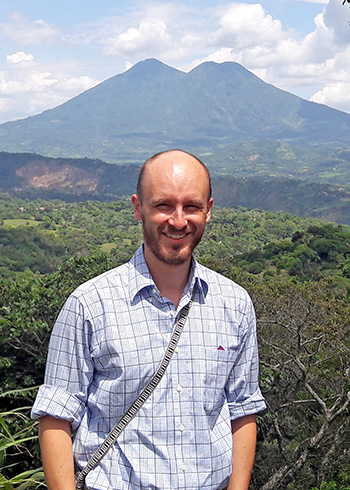Campus News
Doctoral candidate wins Switzer Fellowship for environmental justice research in El Salvador
James Alejandro Artiga-Purcell, a Ph.D. candidate in Environmental Studies, was recently selected for the 2020 Switzer Environmental Fellowship as part of a cohort of 20 top scholar-activists from around the country.

James Alejandro Artiga-Purcell, a Ph.D. candidate in Environmental Studies, was recently selected for the 2020 Switzer Environmental Fellowship as part of a cohort of 20 top scholar-activists from around the country.
The Switzer Fellowship will support Artiga-Purcell’s study of social resistance to extractive industry. In particular, his work focuses on water justice and gold mining in El Salvador, where he’s documenting lessons learned from the successful social movements that established El Salvador as the only country in the world to ban metal mining.
“Gold mining, and extractive industries in general, are a huge environmental issue, in terms of how they impact water,” said Artiga-Purcell. “But there are other social movements that are demanding water justice right now. I’m looking at how we can translate the success and victories of the anti-mining movement more broadly into social and environmental justice within El Salvador, Central America, and beyond.”
Artiga-Purcell said the Switzer Fellowship award will be critical to wrapping up and disseminating his dissertation. He hopes to build partnerships between activists and academia in that process. And for him, the fellowship award is also about forming important personal connections with his fellow cohort members.
“It’s so nice to meet like-minded scholars and activists from around the country who are all geared toward this issue of promoting social and environmental justice,” he said. “And we’re all approaching it in very different ways.”
During his time at UC Santa Cruz, Artiga-Purcell also received the 2018 Blum Scholar Award and has served since 2019 as part of the Critical Cultural Political Economy of Extractivism Research Cluster within the Research Center for the Americas.